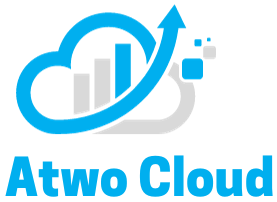What is Salesforce Sales Cloud?
In today’s fast-paced business environment, efficient customer relationship management is critical for driving growth and staying competitive. Salesforce, a leading name in CRM solutions, offers a comprehensive tool called Salesforce Sales Cloud that empowers businesses to manage their sales processes with precision and efficiency. In this blog, we’ll explore what Salesforce Sales Cloud is, its features, benefits, and why it’s a game-changer for businesses.
What is Salesforce Sales Cloud?

What is Salesforce Sales Cloud?
Salesforce Sales Cloud is a cloud-based customer relationship management (CRM) platform designed to enhance sales productivity, manage customer data effectively, and drive revenue growth. It serves as a central hub where businesses can track leads, close deals, and strengthen customer relationships.
With its user-friendly interface and robust functionalities, Sales Cloud has become an essential tool for sales teams worldwide, helping them deliver exceptional results.
2. Key Features of Salesforce Sales Cloud
Salesforce Sales Cloud comes equipped with powerful features designed to streamline and optimize sales workflows:
a.) Lead and Opportunity Management:
Track and prioritize leads while managing opportunities through every stage of the sales cycle.
b.) Contact and Account Management:
Store detailed information about customers and businesses, ensuring personalized engagement.
c.) Sales Forecasting and Analytics:
Generate accurate sales forecasts and gain insights into team performance with real-time analytics.
d.) Workflow Automation:
Automate repetitive tasks, such as follow-up emails and reminders, to save time and increase efficiency.
e.) Integration Capabilities:
Seamlessly integrate with other Salesforce products, third-party apps, and tools to create a unified ecosystem.
Benefits of Salesforce Sales Cloud
Salesforce Sales Cloud offers several advantages that can transform the way businesses operate:
a.) Boosted Productivity:
By automating manual processes, sales teams can focus on selling rather than administrative tasks.
b.) Enhanced Collaboration:
Teams can collaborate in real-time, share updates, and ensure alignment on sales strategies.
c.) Improved Customer Insights:
Access a 360-degree view of customers to personalize interactions and strengthen relationships.
d.) Data-Driven Decisions:
Leverage real-time data and AI-powered analytics to make informed decisions.
How Salesforce Sales Cloud Works
Salesforce Sales Cloud simplifies the sales journey through an intuitive interface and AI-driven functionalities.
a.) The dashboard provides a bird’s-eye view of sales metrics, tasks, and opportunities.
b.) Workflow automation eliminates repetitive tasks, ensuring smooth sales operations.
c.) With Einstein AI, sales teams can predict customer behavior and identify the best opportunities to close deals.
Salesforce Sales Cloud Editions
Salesforce offers multiple editions of Sales Cloud to cater to businesses of all sizes:
a.) Essentials:
Ideal for small businesses just getting started with CRM.
b.) Professional:
Suitable for growing teams with standard CRM needs.
c.) Enterprise:
Designed for large organizations requiring extensive customization.
d.) Unlimited:
A premium option with advanced features and support.
Choosing the right edition depends on your business size, goals, and budget.
Sales Cloud for Various Industries
Salesforce Sales Cloud isn’t limited to a specific industry—it’s highly customizable to suit diverse business needs. From retail to manufacturing, healthcare to technology, businesses across sectors leverage Sales Cloud to enhance their sales processes and deliver better customer experiences.
Salesforce Sales Cloud Success Stories
Countless businesses have achieved remarkable success with Sales Cloud. For instance, a leading retail chain increased its sales productivity by 30% after implementing Sales Cloud, thanks to real-time data insights and automated lead management.
Setting Up Salesforce Sales Cloud
1.) Implementing Salesforce Sales Cloud requires careful planning and expertise:
2.) Define your sales goals and requirements.
3.) Choose the right Sales Cloud edition.
4.) Customize workflows and dashboards to fit your needs.
5.) Train your team for effective usage.
6.) Continuously monitor and optimize the platform.
Collaborating with certified Salesforce experts ensures a seamless and successful setup.
Sales Cloud vs. Other CRM Solutions
While there are many CRM solutions available, Salesforce Sales Cloud stands out due to its scalability, robust features, and AI-driven capabilities. Compared to competitors like HubSpot or Zoho CRM, Sales Cloud offers unparalleled customization and a richer ecosystem for businesses aiming for long-term growth.
Conclusion
Salesforce Sales Cloud is more than just a CRM tool—it’s a comprehensive solution for driving sales efficiency, enhancing customer relationships, and achieving business growth. With its intuitive interface, powerful features, and scalability, it’s the ideal choice for businesses looking to stay ahead in the competitive market.

